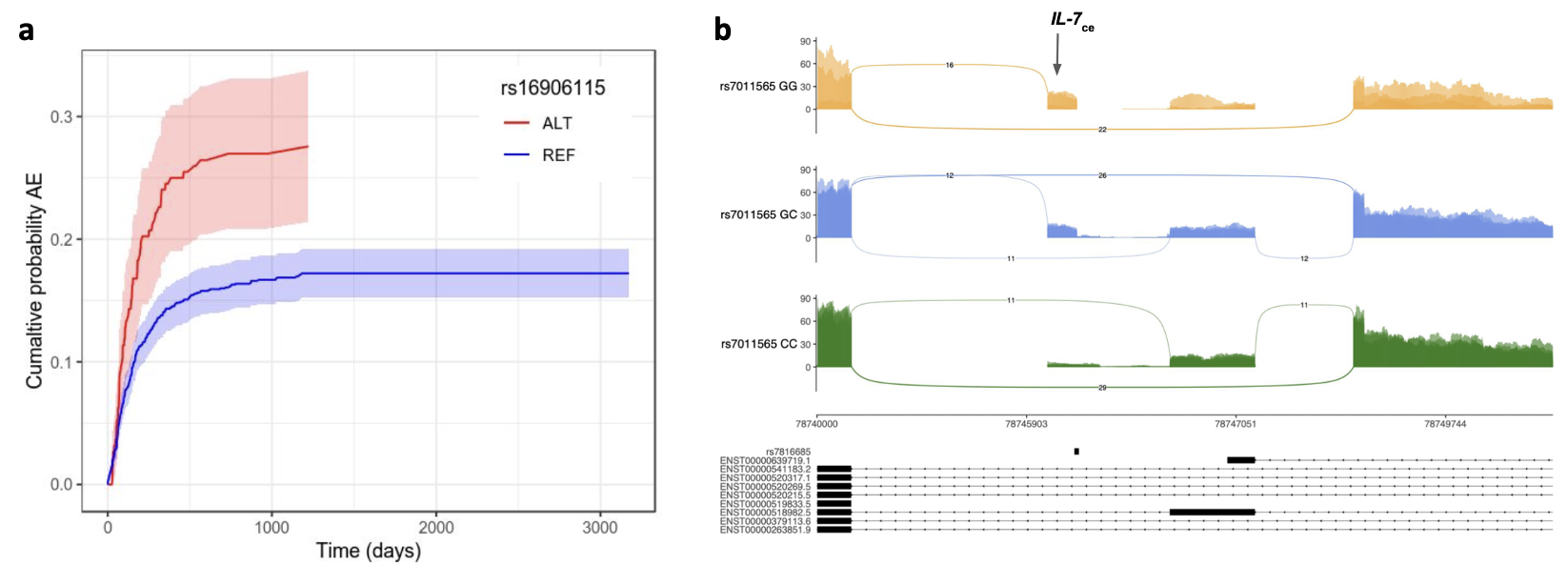Novel germline biomarkers for immunotherapy-related Adverse Events (Groha et al. pre-print)
Our study of germline influences on immunotherapy, led by Stefan Groha, is out as a pre-print. Immunotherapy can be a highly effective anti-cancer treatment but it can also lead to adverse events in some patients, some severe. The mechanisms of irAEs are poorly understood and no biomarkers currently exist. We conducted a genome-wide association study (GWAS) of irAEs in ~1750 patients on immune checkpoint inhibitors at Dana-Farber and identified multiple germline variants associated with moderate to high grade irAEs – the first such finding to date. These variants were common, had high effects, replicated in multiple independent cohorts, and implicated novel biology of irAEs: further investigated in a co-submitted manuscript from the Fairfax lab using cell-type specific expression in an independent patient cohort. We believe this study opens the door to much more GWAS discovery for thereapy-related response and toxicity.
For more details, see the threads from Stefan Groha and Fairfax Lab.
Germline variants associated with immunotherapy-related adverse events.
Groha S, Alaiwi SA, Xu W, Naranbhai V, Nassar AH, Bakouny Z, Adib E, Nuzzo PV, Schmidt AL, Labaki C, Zarif TE, Ricciuti B, Alessi JV, Braun DA, Shukla SA, Keenan TE, Allen EV, Awad MM, Manos M, Rahma O, Zubiri L, Villani A, Hammer C, Khan Z, Reynolds K, Semenov Y, Schrag D, Kehl KL, Freedman ML, Choueiri TK, Gusev A. 2022
Genetic variation at IL7 provides mechanistic insights into toxicity to immune checkpoint blockade.
Taylor CA, Watson RA, Tong O, Ye W, Nassiri I, Gilchrist JJ, Aires AV, Sharma PK, Koturan S, Cooper RA, Woodcock V, Jungkurth E, Shine B, Coupe N, Payne MJ, Naranbhai V, Groha S, Emery P, Mankia K, Freedman ML, Choueiri TK, Middleton MR, Gusev A, Fairfax BP. 2022
Figure: (a) irAE incidence by lead SNP near IL7; (b) IL7 cryptic splicing in carriers
